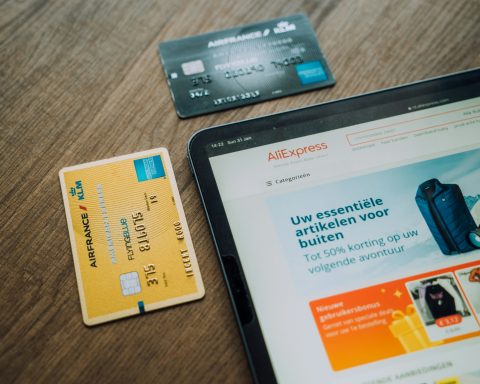There are very different business etiquette histories and cultural attitudes in each country in North Africa. Morocco and Tunisia, being on the Mediterranean Sea, are generally more involved in the European and “Western” culture, while Algeria, Libya, and Egypt are somewhat more “Islamic”, and long dominated by Ottoman and Persian influences.
However, there are specific aspects of business and social etiquette in any Muslim country that must be observed to avoid offending the native population. And some generalizations can be made (such as treating women and children more sensitively than men, and always presenting business cards and visiting cards held with your left hand).
How Business Etiquette in Morocco Works
Business Etiquette in Morocco tends to be quite conservative and even rigid. As in the rest of the Arab world, business is conducted almost exclusively between men. You will find it very difficult to do business with women in official positions. Exceptions to the rigidity are the Jewish population in Morocco (mainly in Casablanca and the “immigrant” population of Tangiers) and business relationships with European, mostly French, companies.
You should show up for all appointments, both individual and group, at least ten minutes before the appointment time. If you are invited for dinner, you may hear, “Droit de seigneur” (right of lord), which means that it is the habit of the host to show up at the hotel of the guest to bring him or her an aperitif before the meal. Usually, this is no more than a polite and social custom, but it also can be used as a time to have the final discussion of the invitation (whether you are going or not).
If you are invited to the home of a potential business partner, be prepared to have a drink — and a lot of it. In Morocco, drinking is done in moderation; it is common to have at least three drinks in a single evening, but a person will rarely appear drunk. In theory, alcohol consumption is prohibited during the Muslim fast of Ramadan, however in practice the restrictions are minimal. Visitors would be well advised to abstain totally, as toasting is an important part of the social ritual.
Moroccans prefer to meet in the evening. If you go to someone’s home for dinner, expect a very late meal. Although it is not strictly “decorum”, it is perfectly acceptable to finish the latter part of the meal before sunset. In all but the most formal situations, Morocco is a place of relaxed and casual tradition and dress. Although, for women, some smart pants or slacks are generally considered acceptable, depending upon the community, a skirt would be nearly unacceptable.
With all of this, always be aware of the importance of your personal values and the particular business etiquette of Morocco; with careful, added sensitivity and awareness, you should have a positive experience in Morocco.
User Happiness is Key to Startup Success
While there are many metrics that indicate how happy an employee is at a successful company, there are also some less tangible yet extremely important metrics that greatly impact employee happiness.
I have been working with startups in Silicon Valley and the San Francisco Bay Area for the past ten years. From my perspective, the companies that are the most successful and the happiest have created effective and insightful cultures, have built an incredible team that fits together and works in sync, and have created an environment where innovation and creativity are enabled.
Happiness at work, for me, may be too ambiguous as a business metric, but happiness rather should be a measure of the work environment and work satisfaction. A large number of metrics show what services are being used, when and how frequently employees interact with the services, and what the end result of this use was (i.e., whether the action or service satisfied a need). This is the essence of the employee usage metrics that I believe indicate happiness at work.
Payer Trends
There are many, many metrics that can indicate that employees are happy. Total utilization, how many people used the service or product, and a total number of users can tell more about business satisfaction than the amount of money spent.
Assuming that the provisioning process and product/service provisioned was done correctly, the more people that use the service, the happier they are, and vice versa.
I believe that this portion of the metric is the most important, as this is a definite measure of employee satisfaction. It is very important to understand this utilization trend.
Business Laws in Morocco: Everything You Need to Know Before Doing Business in Morocco
Part of IBA Hotels’ commitment to provide the best legal information to people intending to start businesses in Morocco, we are publishing the most recent and general business laws and regulations into a new section that will be developed and added into.
We believe that it is vital for new companies to have easy access to business information in order to make an informed decision before starting their business. Please feel free to browse through our company’s website for more information, and, if you have any questions, please do not hesitate to contact us at any time.
Al Kout SEZ is the first Special Economic Zone in Morocco and is located in the southeast of the country – 71 km from the city of Nador, facing the Algerian border and within Pôle Emploi.
It covers a surface area of 20 million m2, and the zone offers attractive incentives for investment and employment. The zone provides the dual advantages of close proximity to the commercial port of Nador (about 120 km away) and the logistical advantages of its geographical and economic environment. Upon entering the zone, investors enjoy fiscal and legal privileges when launching their projects. At the same time, the zone provides the conditions and facilities for investment and logistical activities, and the installation of public and private facilities.
The SEZ Al Kout boasts a range of potential investment opportunities in a wide variety of sectors and industries including manufacturing, particularly for automotive, chemical, plastic and textile, as well as agriculture with the development of agricultural land and livestock for breeding and farm products.
What investment conditions are offered by the Zone?
- Free zone within the total of 19,534 hectares
- Legal status of a free zone
- Free zone regime
- No personal or real property tax
- No VAT on goods and services sold in zone
- Non-distribution of dividends tax
- No income tax
- No wage taxes
- Conformity with the Common Code of Foreign Assets Tax
- Exemption from customs duties
- Participating or partners of the joint stock company
On the basis of Article 107 of the Moroccan Customs Code, companies that have formed partnerships or joint-stock companies are exempt from customs duties on the first six million dirhams of their annual imports, provided that these goods are to be re-exported or sold on to third parties in the outside Belgium area. This exemption only applies for commercial activities in the zone provided that the goods imported are produced in the zone.
Conformity with internationally applied provisions
General exception regarding the Convention on the Employment of Children, the Minimum Age, Repeal of Article 535 of the Labor Code
Companies have the limited right to employ children under the age of 14, provided that the work is part of a vocational training program and is included in an internship program. In addition, these companies are subject to a number of legal provisions. The law also mentions a set of exceptions that apply to the provisions of the Convention on the Minimum Age (ILO Convention 138 of the year 1973). These exceptions specify that employment of children under the age of fourteen carried out under the following conditions is permitted in Morocco:
- a) The activity takes place in an establishment whose principal activities are not those of manufacturing or mining;
- b) The activity is not harmful to the health or development of the child;
- c) The activity does not restrict the child’s capacity to attend school; and
- d) The child receives the wages normally paid for such an activity.
There is also a ban on night work for children. The convention is applicable, and these provisions will be implemented, whether or not an agreement has been signed or ratified, by the Member States involved for the purpose of any trade agreement.
Effective on April 1st, 2006, the amendments to the World Trade Organization’s (WTO) TRIPS Agreement take effect, and require that patents be enforced in any WTO Member country.
The importance of the enforcement provisions of the WTO TRIPS Agreement is reiterated in the Cancun Declaration, which states that Members have a window of opportunity from January 1, 2005 until December 31, 2006 to implement the enforcement provisions. The use of a grace period is an acceptable means whereby Members can implement the enforcement provisions of the TRIPS Agreement. However, the decisions and recommendations of WTO dispute resolution panels and the DSB are not applicable to electronic goods or computer software.
Moroccan Labour Law: What You Need to Know as an Incoming Employer
Moroccan labour law requires that a Moroccan labour sponsor (can be an individual or an organization) accompany non-Moroccan workers while they reside in Morocco. A labour sponsor is required to provide the service of a social security adviser who is familiar with the Ministry of Labour’s regulations concerning foreign workers in Morocco. A social security adviser is a staff member appointed by the Moroccan labour sponsor to help the foreign worker act in accordance with Morocco’s labour practices.
The role of the adviser is two-fold. First, the adviser provides a source of information on labour law concerning all foreign workers. There is an initial guide for each new labourer, and the adviser will provide additional material. Secondly, the Social Security Adviser assists in meeting all of the university’s obligations to the universities. The role of the adviser is to ensure that the foreign worker sends all correspondence to the labour sponsor in accordance with regulations.
Original copies of the employment contract, the work permit, the insurance, and a certified refusal of repatriation can be sent at any time to the Ministry of Labour. After receipt of these documents, information pertaining to individual workers can be obtained by the Ministry as needed.
The Social Security Adviser is the person that handles issues pertaining to these documents. Any administrative difficulties or confusion will be handled by the Social Security Adviser. A labour sponsor is required to have a Social Security Adviser to handle issues regarding the contract and insurance, and to attend the social security workshop
Part of IBA Hotels’ commitment to provide the best legal information to people intending to start businesses in Morocco, we are publishing a new section that will be developed and added into.
We believe that it is vital for new companies to have easy access to business information in order to make an informed decision before starting their business. Please feel free to browse through our company’s website for more information, and, if you have any questions, please do not hesitate to contact us at any time.
The Touristic Zone ‘’Canal d’Oued Lacher’’ is located at the south of the city of Beni Mellal, along the road connecting Beni Mellal and Fes.







